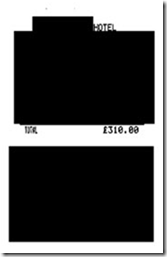Federal Decision Eschews “Line by Line” Scrutiny and Does Not Mind Redacted Billings in Many Instances.
In an earlier post when we first began blogging on California attorney’s fees, we reported on Gregg I & II out of the Fourth District, Division 1 Court of Appeal. (See our June 30, 2008 post.) These decisions suggested that redacted billings adequately support fee requests, although they should only be redacted so as to shield sensitive (really privileged) information so that the trial judge can truly gauge the services being claimed. [Contrast this, however, with cases that indicate attorney declarations can suffice as substantiation under the right circumstances, as detailed in our “Substantiation of Fee Requests” category on the home page.]
However, for purposes of contrasting the differing approaches taken by California and federal courts with respect to fee substantiation adequacy, we briefly examine Metavante Corp. v. Emigrant Savings Bank, Case Nos. 09-3007/09-3996 (7th Cir. Aug. 30, 2010).
There, the prevailing party under a contractual fee-shifting provision petitioned for nearly $10 million in fees and costs, submitting redacted bills in support—showing the amounts of time, rates, and money spent, but with redactions of the descriptions of work performed. (Keep in mind, importantly, that sophisticated companies were involved, and fee petitioner had in-house counsel looking over the bills, which were incurred and paid.) The district judge awarded every bit of the fee request, prompting an appeal by the loser that raised the redacted fee substantiation as a major issue.
The Seventh Circuit rejected the notion that unredacted bills had to be supplied in this particular situation, given an earlier decision where it held that the lower court should look at aggregate costs to gauge the reasonableness of the request in relation to the stakes of the case and overall litigation pragmatics—with the marketplace being a key determinant (after all, if the fees were incurred and paid, that tends to show they were reasonable when sophisticated parties are involved). “[Prior Seventh Circuit cases] hold that, as a matter of the efficient and fair administration of the federal courts, individual scrutiny of line-item entries is neither necessary nor appropriate in contractual fee-shifting cases.” (Slip Opn., p. 50.) Of course, this holding depended on the district judge aptly determining that market mechanisms showed the fees were reasonable in nature.
As a corollary, the federal appeals court was swayed by the fact that the party opposing the fee request declined to reveal its own fees as a measure of a reasonable expenditure, using out-of-town counsel yet criticizing its opponent for also using nonlocal counsel. Nevertheless, the Seventh Circuit ultimately concluded that “ . . . in most situations, as here, [the district judge’s] responsibility [to show the fees are candid and reasonable] can be discharged without line-by-line scrutiny of submissions.” (Slip Opn., p. 53.)
A page of a British MP’s redacted expenses published by the Guardian, UK.

